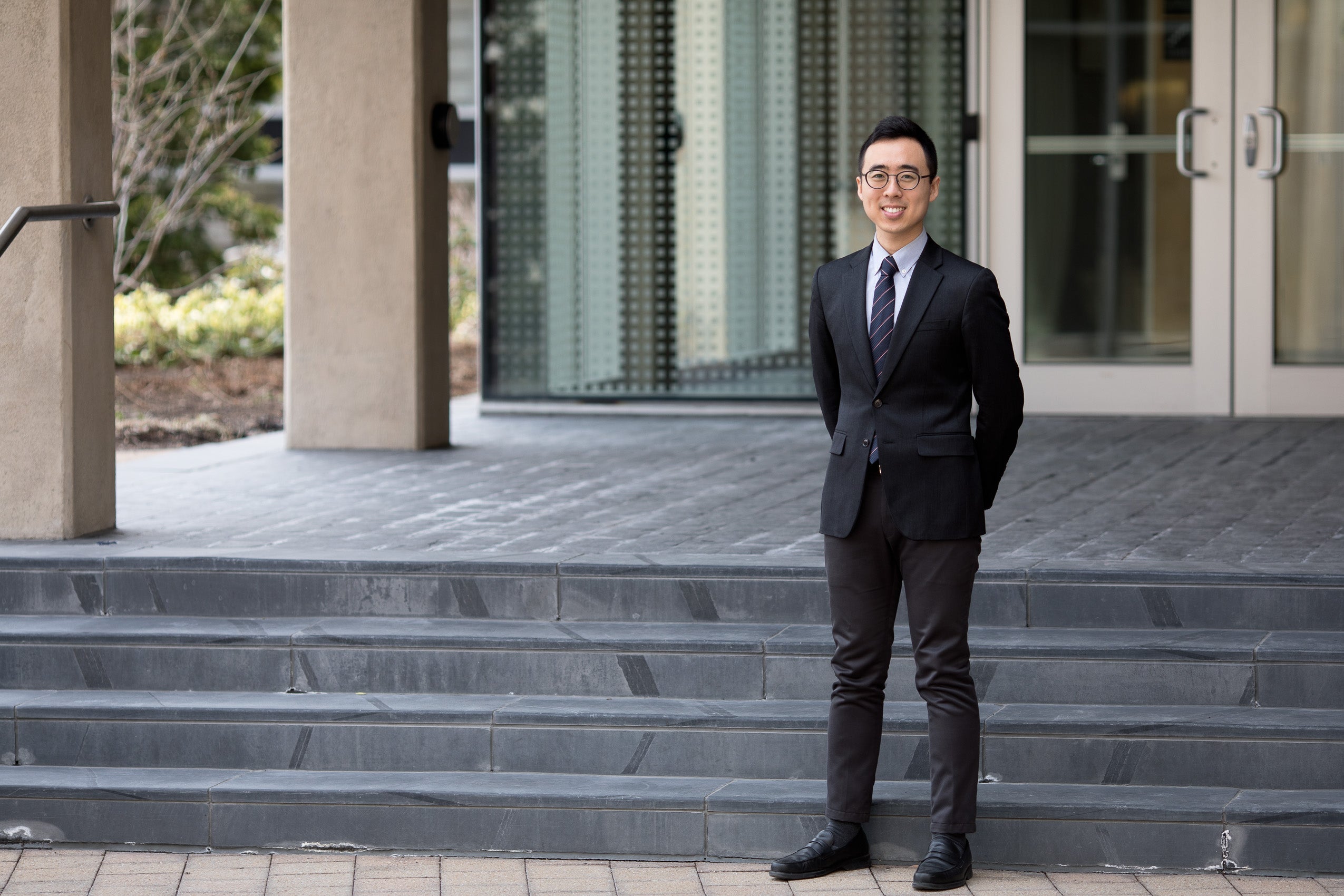When he was in high school in his native South Korea, Ha Ryong (Michael) Jung ’18 volunteered at a custodial facility for neglected children. “It was wonderful and at the same time heartbreaking,” he remembers. “It seemed like they were isolated from the system and society. I was young at the time myself, so I didn’t really know what I could do as a person. But the more I gained work experience, the more I saw the need for law to help protect these children and their rights.”
A burgeoning interest in poverty and development led him to major in business administration at the University of Michigan; a summer research project on regional poverty and education in Ghana was so engaging that he and his fellow students learned traditional Ghanaian music and dance so that they could perform on campus to raise funds for girls who wanted to go to school. Returning home after college, he completed an internship with Korea’s National Assembly and his mandatory two-year service in the South Korean army, and worked with UNESCO’s Asia-Pacific Centre of Education for International Understanding.
Throughout, “children were still nagging at my heart,” he recalls. “I continuously came across instances where legal frameworks existed, and there was functioning law enforcement, but children were being sidelined. I wanted to understand what the international and national mechanisms were that exist to protect our children, and it was this curiosity that was really my primary motivation for coming to law school.”
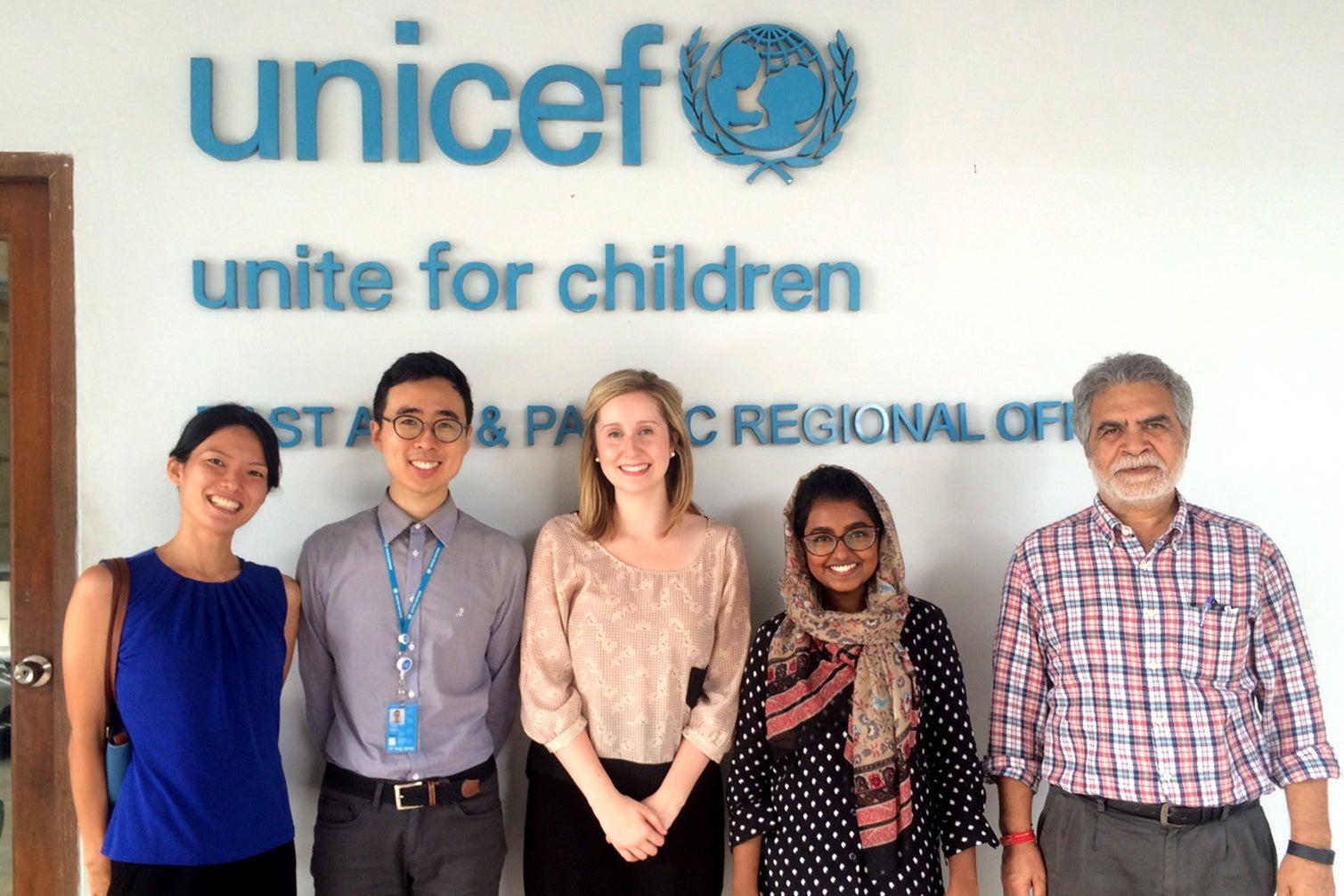
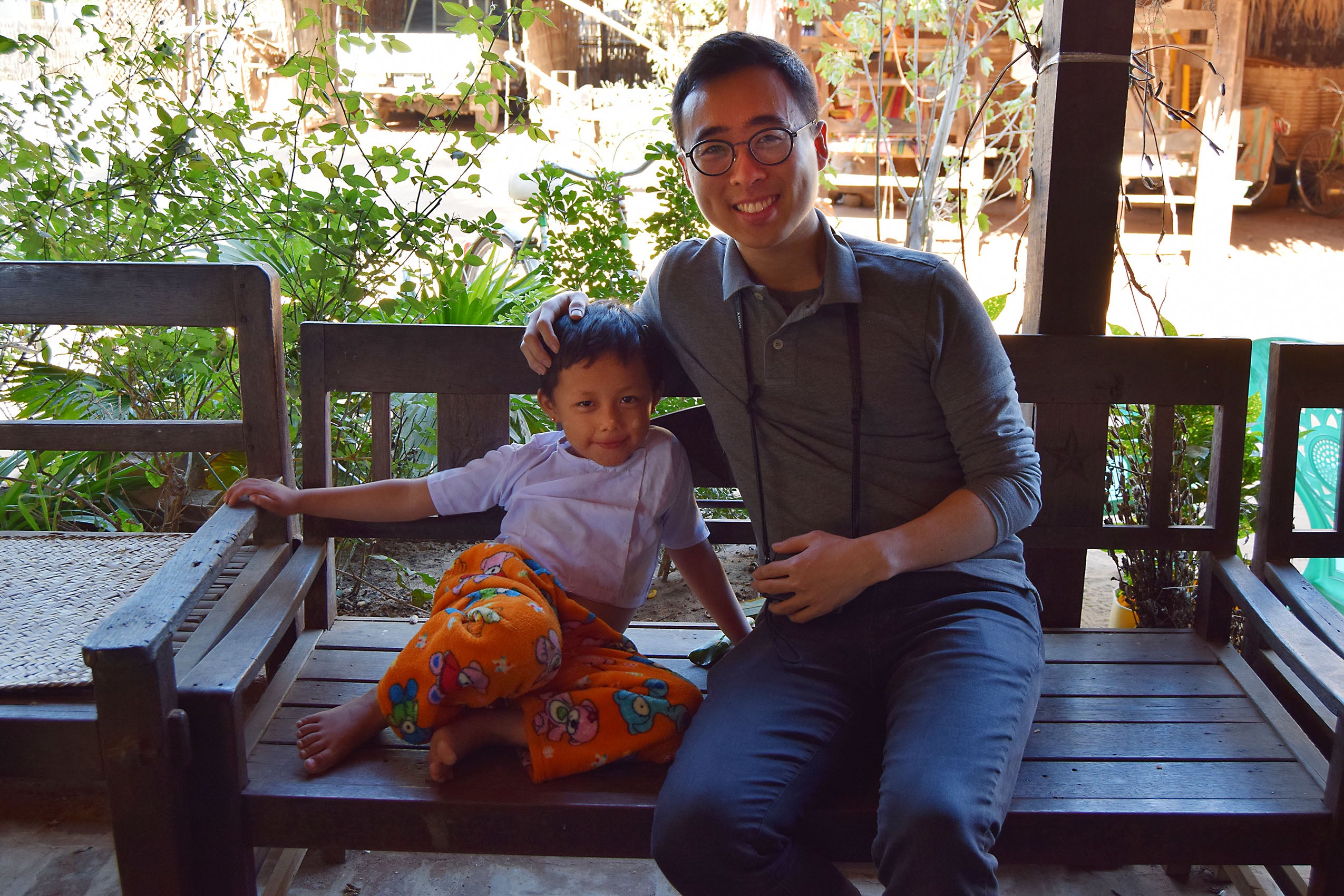
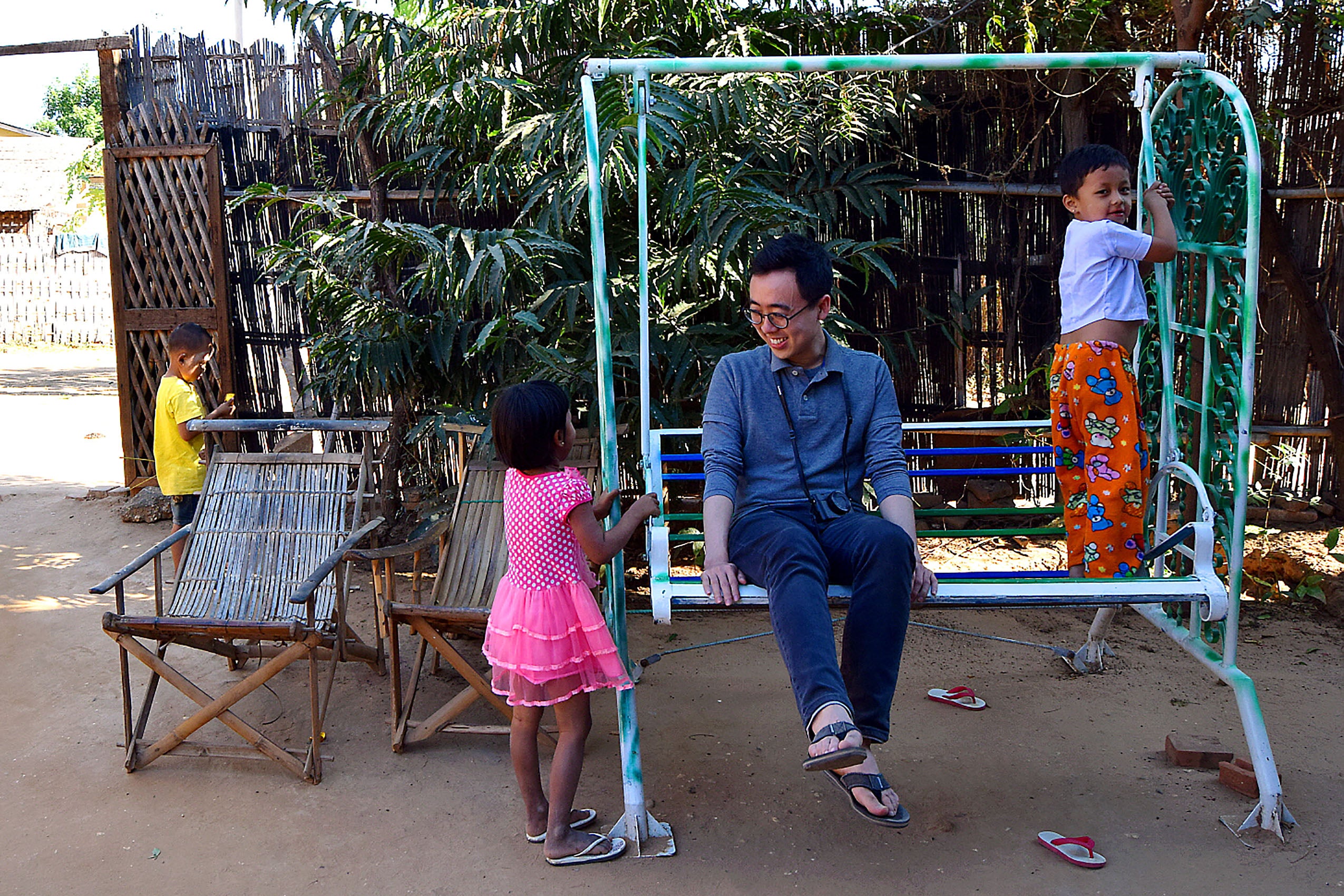
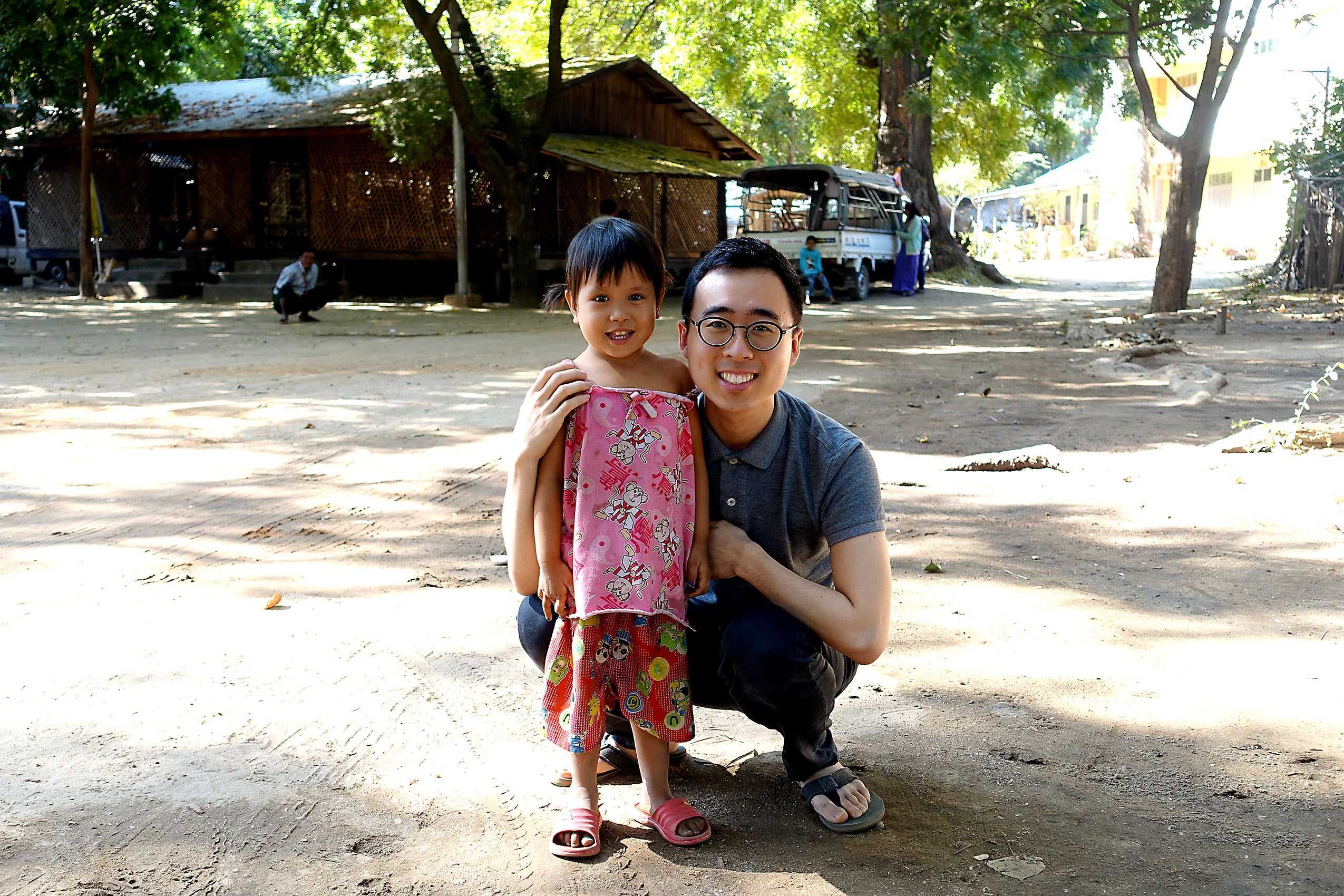
Jung stands out for his focused, strategic approach to gaining academic and work experience in his chosen field, and in the region — Southeast Asia — where he hopes to work after graduation. In his time at Harvard Law School, he has completed extensive coursework and clinical training in children’s rights, human rights and child protection, criminal justice, international and foreign law, and human rights advocacy and negotiation. Outside of the classroom, Jung has been active in student organizations and journals, and has sought out internships and other opportunities to gain relevant experience, domestically and abroad, during summers and Winter Terms.
Some of his efforts have allowed him to explore the broad field of human rights, with an international scope. In his 1L year, he joined a student practice organization, Advocates for Human Rights, where he worked on a project addressing statelessness, the right to citizenship, and the electoral disenfranchisement of the Rohingya people in Myanmar. In his 2L and 3L years, he turned to clinical opportunities, working on several projects in the International Human Rights Clinic. These included efforts to address the prevalence of violence against women and girls in Myanmar, law reform campaigns on behalf of the LGBTQ community there, and working with refugee camp committees on the Thai-Burmese border to examine best practices around repatriation.
In other activities, Jung focused more deeply on children. He was a Chayes International Public Service Fellow in both his 1L and 2L summers, working first in UNICEF’s East Asia and Pacific Regional Office in Bangkok, Thailand, and then in the Extraordinary Chambers in the Courts of Cambodia in Phnom Penh. Working in Cambodia, he explains, helped him understand the effect on children of years of strife there, and to see how the Court addressed the issue of child victims. Back on campus, he has completed externships with the Child & Youth Protection Unit in the Massachusetts Attorney General’s Office and with the Boston Juvenile Court. He was also the first HLS student to earn a Child Protection Certificate from the Harvard François-Xavier Bagnoud Center for Health and Human Rights, through an interdisciplinary program for graduate students from across the university.
He is quick to point out the importance of taking this holistic approach, of balancing his strong focus on child protection with a broader look at human rights, criminal justice and other issues, and of ensuring that he has a solid grounding in U.S. law as well as in the laws and systems of other countries. Jung has already seen how his work here and abroad complement each other. “People outside of the United States ask me about the system in the U.S., inquiring how they could help improve their own systems. If it weren’t for the Child Advocacy Clinic, I would not have been able to really explain what the system here looks like, especially in Massachusetts,” he explains.
As wide-ranging as his studies and activities have been, Jung has been purposeful in planning his path. Before he arrived at HLS, he spent considerable time poring over web sites and course catalogs — not just at the law school, but across Harvard — taking notes on what courses and programs he could pursue and which professors he wanted to approach, and mapping out his time here, semester by semester. In fact, when he’s asked what advice he would give to incoming students, he recommends that they do this kind of advance preparation, as there will be many other demands on their time once they’re here, and “it’s less likely that you’ll miss opportunities if you already know where to look.”
After graduation, Jung will be undertaking a legal fellowship in Cambodia to assist in ensuring protection and justice for children, grounded in children’s rights. Still, looking back to his time in Ghana, he adds, a little wistfully, that he would like to work in Africa someday, an unsurprising wish for a focused advocate with a wider view.
